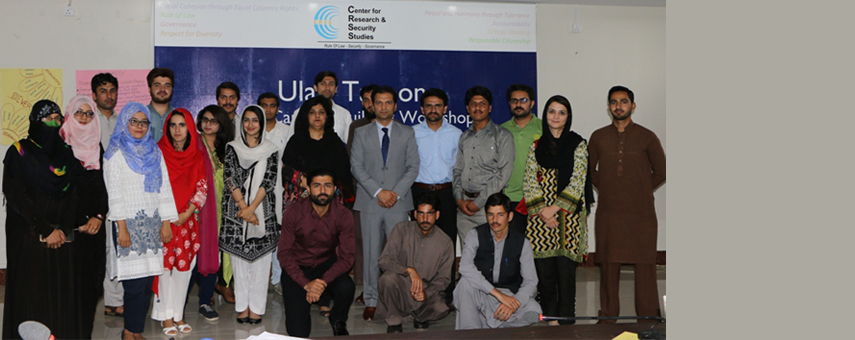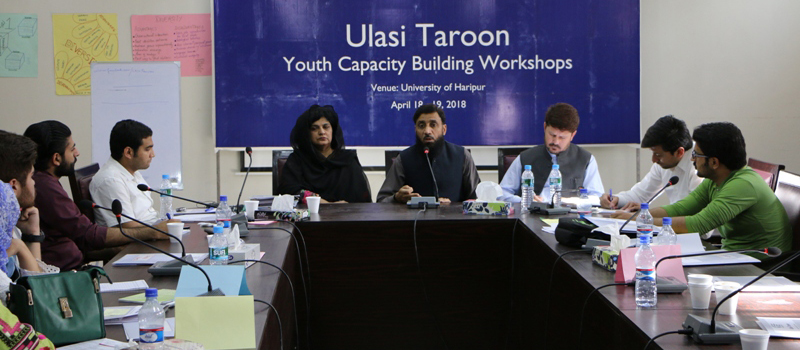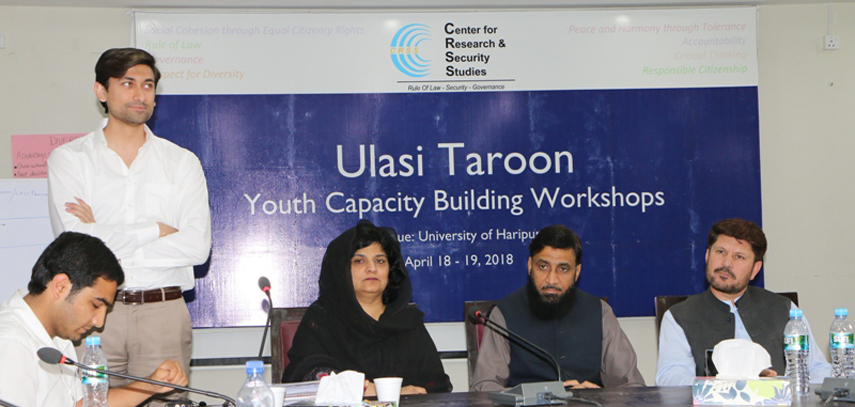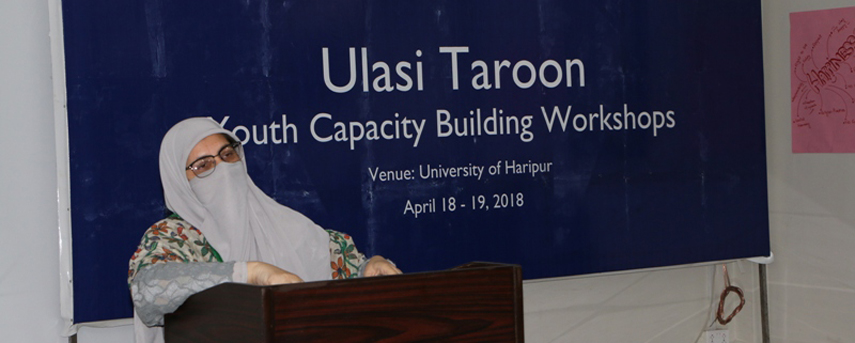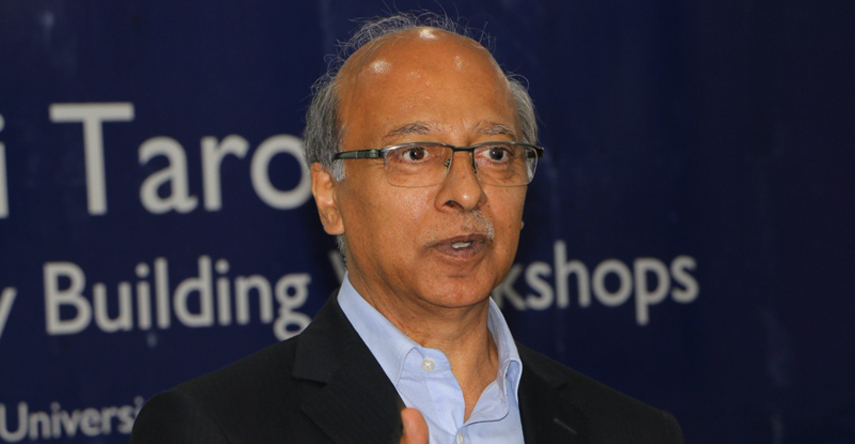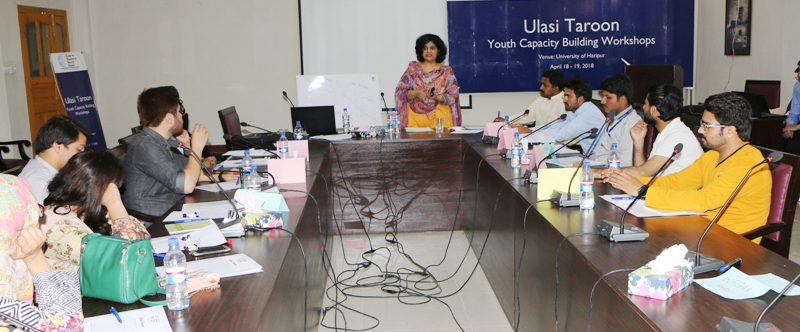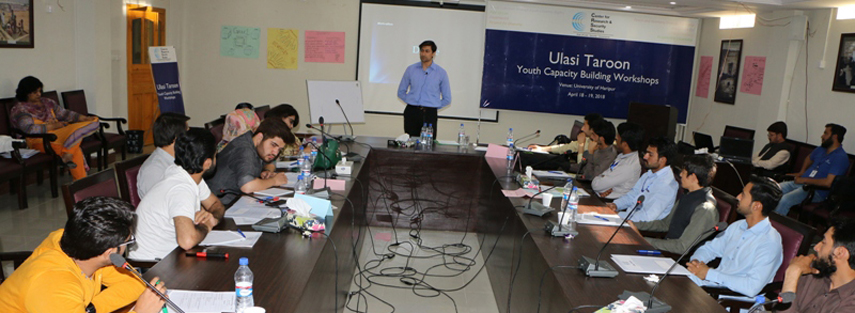Social and political awareness and education are critical for both voters and election candidates. Public can play a crucial role to mobilize enough pressure on the legislature for effective representation and policy making. The youth participation in the democratic processes is vital to inclusive democracy in the country. There is a dire need to improve the educational system of the country and incorporate ideals of cohesion and peace in the syllabi. Good governance requires involvement of public in the decision that concern them. Rule of law refers to a society where judiciary, legislature and executive only commit to adjudication, legislation and execution respectively. Rule of law is rule of rights. The lack of understanding of culture and religious context leads to the discrimination and violations of human rights. The starting point for peaceful coexistence is acceptance. The levers of power should be in the hands of enlightened people to ensure equality in the society. We should avoid hatred as hate is the easiest tool to perpetuate violence.
There were the notions expressed by the speakers – including Ms. Amna Sardar, Member of KP Assembly; Syed Khalid Hamdani, District Police Officer (DPO), Haripur; and Prof. Dr. Abid Farid, Vice Chancellor, University of Haripur – during the fifth round of Ulasi Taroon, Youth Capacity Building Workshops organized by the Center for Research and Security Studies (CRSS) at University of Haripur from April 18-19, 2018.
Ms. Amna Sardar said, “For effective communication, it is important for students to speak up and clearly express their thoughts as future leaders”. She explained to the participating students that the social and political awareness and education are not only a critical trait for voters but also for the candidates asking votes. The consideration to cast vote should be national and societal interest instead of personal interest or family association. The individual qualification of the candidate – in regard to understanding of the issues of local concern, ownership and moral character – should also be considered to elect them as public representatives. The youth is harbinger of change and their participation in the democratic processes – given their significant percentage in the total population – is of paramount importance to elect the people who can better represent the country. The dishonest leaders do not have the right to represent the country. The primary role of legislature is legislation, oversight and representation. But the role of public is also very crucial to mobilize enough pressure on the legislature for effective representation and policy making. There is a dire need to improve the educational system of the country. While it’s important to allocate a major part of country’s resources for education, health and youth development, but the infrastructure development is also very important. Rule of law refers to a society where judiciary, legislature and executive only commit to adjudication, legislation and execution respectively. It’s the responsibility of the public representatives to deliver truthful information to the public to ensure good governance and transparency. Good governance requires involvement of public in the decision that concern them.
Syed Khalid Hamdani, District Police Officer (DPO), Haripur said, “We cannot opt for the civilized solutions and adopt ideals of acceptance if our value system is preoccupied with violence, discrimination and biases”. You can discriminate someone on behaviors but you cannot discriminate on the basis of peoples’ backgrounds. Rule of law is rule of rights including right to life, education, due process, movement etc. We should show acceptance and not judge others for peaceful coexistence. Rule of law demands that we accept everyone’s fundamental rights enshrined in the constitution without any bias. It means that everyone is given equal respect and access to justice. The lack of understanding of culture and religious context leads to the discrimination and violations of human rights. Protecting fundamental rights is not only critical for rule of law and peace but also for the economic development of the country. The starting point for peaceful coexistence and harmonized society is acceptance where we accept, protect, expand and consolidate rights. We must give right to due process no matter how big is the criminal. We know where the problems lie, we even know the solutions but the implementation of solutions require education of the society simultaneously. The youth has immeasurable capacity which they must utilize to follow their dreams and achieve their goals. You can break the societal pressure by raising your voice.
He said that policing the police is also important to avoid misuse of power. The levers of power and influence should be in the hands of enlightened people to ensure equality in the society. We should avoid hatred as hate is the easiest tool to perpetuate violence.
Prof. Dr. Abid Farid, Vice Chancellor, University of Haripur said that the population should not be taken as a problem but as an opportunity. If trained properly, the biggest asset that we have is our youth which many countries are starving for. Besides formal education, the educational system should focus on the soft skills and values; incorporating the ideals of social cohesion in the curricula. The positivity starts from being grateful. We must keep in mind that our state of positivity determines our success; so we need to be positive and happy and a happy person better chases her/ his goals.
Dr. Jahangir from University of Haripur appreciated the CRSS efforts for social cohesion and harmony through a democratic discourse embedded the core constitutional ideals and underpinned the need for logical and dispassionate debate. It is absolutely critical to respect people with different views and faiths as a measure of ensuring peaceful coexistence.
Mr. Imtiaz Gul, Executive Director, CRSS said that equality begins at home. It demands that all the family members are treated equally regardless of gender.
Ms. Shagufta Khalique, Educationist said that empathy is absolutely important for peaceful conflict resolution and it also requires good communication.
Mr. Malik Mustafa, Team Leader/ Manager Programs called for building the critical thinking and soft skills of the students and stressed to comply with the democratic values to foster social cohesion.
The workshop was participated by the students of University of Haripur; Abbottabad University of Science and Technology; and Ghulam Ishaq Khan Institute of Engineering Sciences and Technology.
Ulasi Taroon is a counter radicalization initiative of CRSS that aims to address the radicalization challenges, extremist ideologies and foster social cohesion through a discourse anchored in the core constitutional values which are fundamentally essential prerequisites for social peace and harmony. The endeavor aims to cultivate and sensitize the youth – in the universities across KP and FATA – in the core values in the Pakistani constitution and our social contract. It’s an attempt to highlight the criticality of abiding by these ideals – such as adherence to rule of law, primacy and sanctity of constitution, equal citizenry, responsible citizenship, respect for fundamental human rights, tolerance for diversity and different opinions, inclusive democracy and good governance – as a measure of fostering social cohesion and peaceful co-existence.

